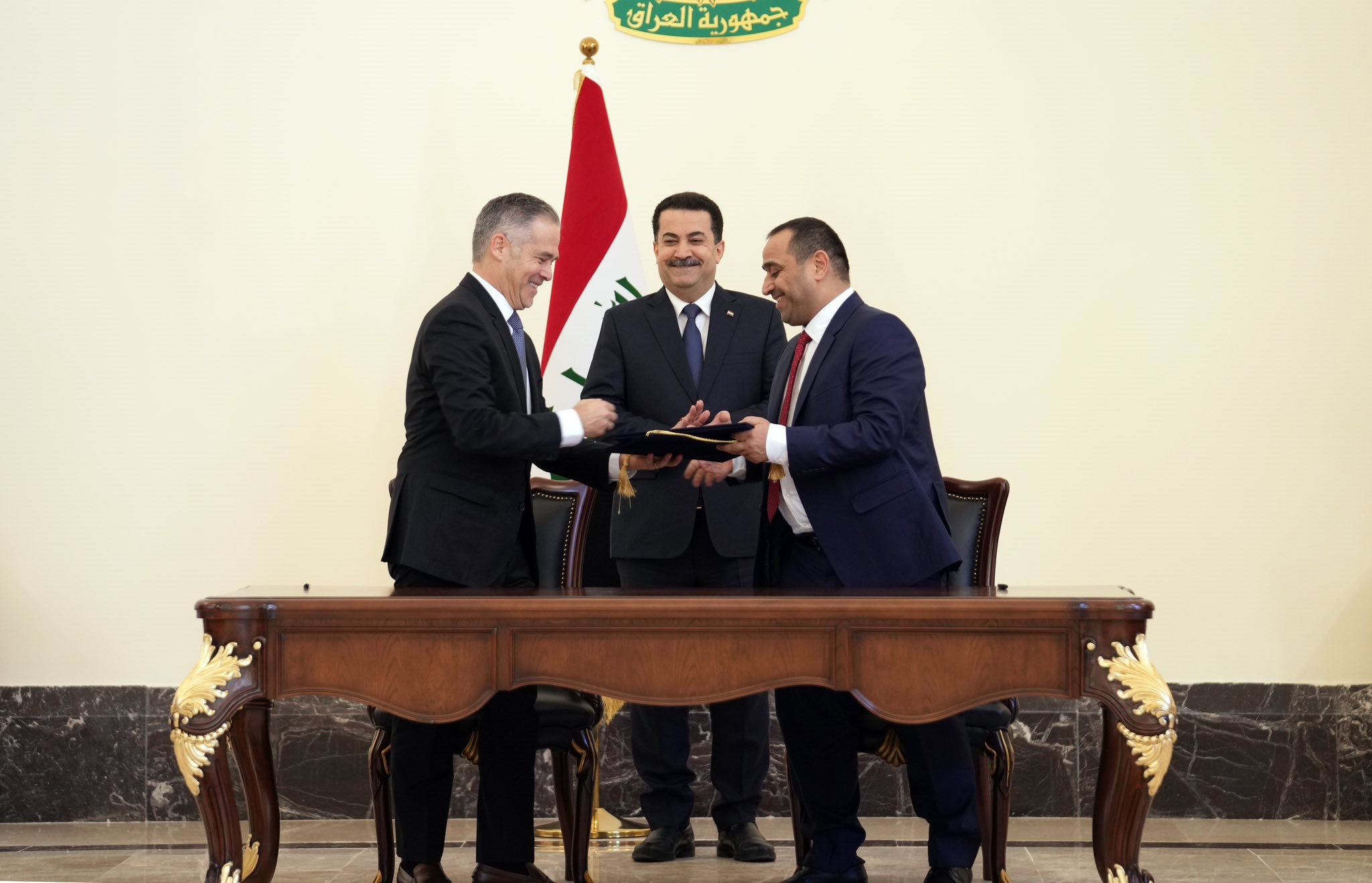Under the Patronage of H.E. Mohammed Shia' Al Sudani, the Prime Minister of the Republic of Iraq
- H.E. Ziad Ali Fadhil, Minister of Electricity: “Our strong relationship and track-record with GE over the decades has been critical to upgrading our infrastructure and supporting our path to energy security.”
- GE’s team has worked with the Iraqi Ministry of Electricity and the private sector to add up to 19 gigawatts of new power capacity in little more than a decade, relieve power flow congestion, and improve grid reliability
Underlining its long-term commitment to support Iraq address its growing power needs and the country’s transition to a cleaner energy future, GE (NYSE: GE) has signed Principles of Cooperation (PoC) in Energy with the Ministry of Electricity (MOE), Republic of Iraq. The initiative aims to explore opportunities to increase output through establishing new power plants and expanding capacity at existing facilities; maintaining and rehabilitating installed power generation and transmission infrastructure for more secure electricity supply; establishing new substations to relieve grid congestion across various directorates; enhancing the interconnectivity between the Jordanian and Iraqi grids; and driving the decarbonization of the country’s energy sector. As part of a services agreement being assessed under the PoC, the MOE and GE also plan to further strengthen local capabilities by setting up a Center of Excellence that includes a Monitoring and Diagnostics facility for the MOE’s fleet, as well as a Training Center for their staff.
Under the Patronage of H.E. Mohammed Shia' Al Sudani, the Prime Minister of the Republic of Iraq, the PoC was signed by H.E. Ziad Ali Fadhil, Minister of Electricity, Iraq, and Joseph Anis, President and CEO of GE Gas Power Europe, Middle East, and Africa, in the presence of The US ambassador to Iraq Alina Romanowski.
H.E. Ziad Ali Fadhil said: “There is an urgent need to address the current electricity shortfall across Iraq and meet the growing power needs of the people to accelerate the nation’s sustainable economic development. Our strong relationship and track-record with GE over the decades has been critical to upgrading our infrastructure and supporting our path to energy security. The new PoC builds on our previous collaborations and scales up efforts in driving efficiencies and delivering access to more affordable, reliable, and sustainable power as we transition to a lower carbon intensity energy future.”
Joseph Anis said: “Strengthening the power infrastructure in Iraq not only meets rising energy needs but also serves as a springboard for economic growth. GE has worked closely with the people of Iraq for more than 55 years to support the development of the energy sector. We have added up to 19 gigawatts of capacity in the country in little more than a decade, were among the first to rehabilitate power generation facilities in liberated areas across Iraq, and have supported the government of Iraq to secure over US $2.4 billion in funding for energy sector projects since 2015. The new PoC illustrates our continued commitment to deliver real results that drive progress across Iraq and help build local capabilities. It is an extension of our ongoing collaboration with the Ministry of Electricity and reflects their vision to drive positive change by supporting the growth of more reliable and sustainable power infrastructure.”
In 2021, GE developed a comprehensive “Energy Transition Plan” for Iraq which encompasses several transformative strategies to support the country’s evolution to a cleaner energy future and further develop the capabilities of local energy sector professionals. These include the conversion of existing simple cycle power plants to combined cycle, which can help enhance efficiency by up to 50 percent, generate significant fuel savings, and decrease greenhouse gas emissions intensity by up to 35 percent; utilizing gas that is currently flared to produce electricity; as well as implementing carbon capture solutions and using hydrogen to fuel power plants to lead to potential near-zero carbon emissions in the long term. Implementing the pillars of this plan can help provide stable and sustainable power to more areas, create thousands of jobs for the Iraqi people, and stimulate the local economy by providing opportunities for local companies and suppliers.
In addition to its efforts to develop critical national infrastructure, GE regularly engages in community development projects in Iraq. GE has collaborated with Kapita to support up to 50 microbusinesses owned by Iraqis to scale up further by providing grants, marketing support, and business training. The company has also provided scholarships to Baghdad Business School students. GE’s team in the country comprises of up to 95 percent Iraqi professionals, who are working to make a positive impact across Iraq.
-ENDS-













